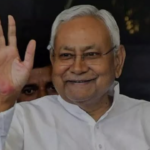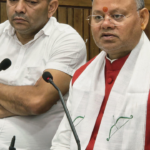Panama has officially lodged a complaint with the United Nations in response to remarks made by former U.S. President Donald Trump, who suggested that the United States should take control of the Panama Canal. This controversial statement has triggered concerns in Panama, leading the government to begin an audit to assess the potential impact of such a move on the country’s sovereignty and economic stability.
In a formal communication to the U.N., Panama expressed its strong opposition to Trump’s comments, which were perceived as a threat to the nation’s control over the vital waterway. The Panama Canal, a global shipping artery, has been under Panamanian control since 1999, following the transfer of ownership from the U.S. under the Torrijos-Carter Treaties. Panama’s government emphasized that any attempt to interfere with the canal’s administration would violate international agreements and undermine regional stability.
The audit initiated by Panama aims to evaluate any potential security or financial risks arising from the possibility of a shift in control over the canal. The government is also assessing the broader implications on the country’s infrastructure, economy, and its relationships with other nations, particularly the U.S.
The remarks from Trump, which resurfaced during recent public appearances, have sparked significant controversy in Panama. Critics argue that such rhetoric undermines the decades-long efforts to maintain peaceful and cooperative relations between the U.S. and Panama. While the U.S. government has not officially endorsed Trump’s statements, they have reignited fears in Panama of external interference in one of the most strategically important regions in the world.
In response to these developments, Panama is calling for diplomatic discussions and further international support to safeguard the canal’s neutrality and the country’s sovereignty. The government is also seeking the backing of global organizations like the U.N. to ensure that any attempt to alter the status quo is met with global resistance.
As the situation unfolds, Panama’s audit is expected to provide critical insights into potential vulnerabilities, while the U.N.’s involvement may set the stage for a broader international dialogue on the issue. With the Panama Canal being an essential link for global trade, the repercussions of this conflict could extend far beyond the borders of Panama and the United States.
The ongoing tensions serve as a reminder of the canal’s lasting geopolitical significance, and how any threat to its control reverberates across international relations.








